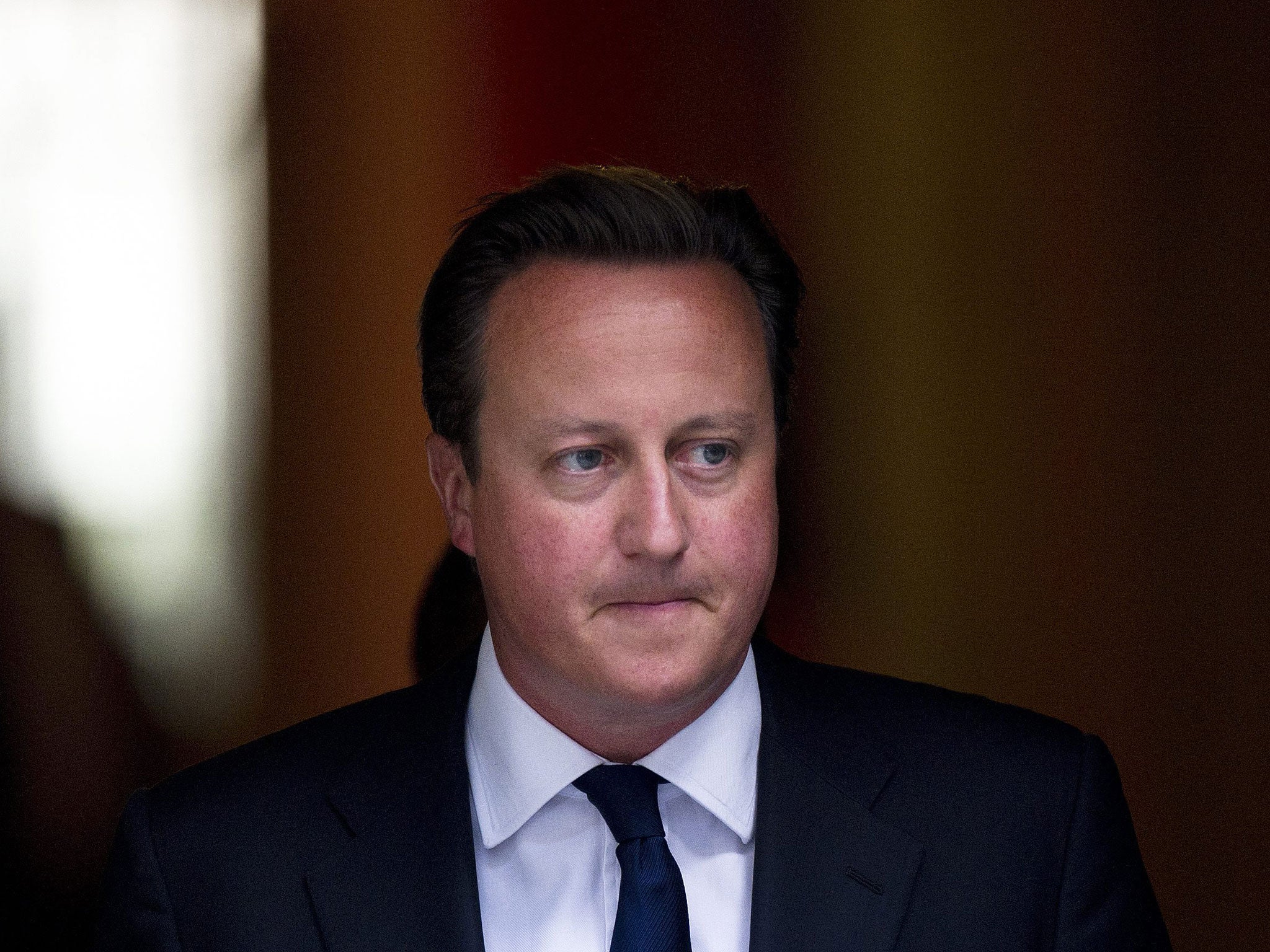David Cameron announces Britain is to host next year’s Nato summit
Military chief welcomes news as confirmation that UK still has ‘leading role to play’ in alliance

Your support helps us to tell the story
From reproductive rights to climate change to Big Tech, The Independent is on the ground when the story is developing. Whether it's investigating the financials of Elon Musk's pro-Trump PAC or producing our latest documentary, 'The A Word', which shines a light on the American women fighting for reproductive rights, we know how important it is to parse out the facts from the messaging.
At such a critical moment in US history, we need reporters on the ground. Your donation allows us to keep sending journalists to speak to both sides of the story.
The Independent is trusted by Americans across the entire political spectrum. And unlike many other quality news outlets, we choose not to lock Americans out of our reporting and analysis with paywalls. We believe quality journalism should be available to everyone, paid for by those who can afford it.
Your support makes all the difference.Britain will host next year’s Nato summit, the first to be held in this country since 1990 when Margaret Thatcher was Prime Minister and the Cold War, while thawing, was still the focus of Western defence.
The event will take place against the backdrop of troop withdrawals from Afghanistan – the alliance’s longest military mission – and other challenges such as the Syrian civil war and mounting pressures to help combat jihadist insurgencies elsewhere.
David Cameron said: “This will be another important moment in the history of the alliance. It will be an opportunity for leaders to recognise the contribution and the sacrifice made by our servicemen and women as the Isaf mission in Afghanistan draws to a close.
“The summit will also be about the future of our alliance. Britain has always been at the forefront of shaping the alliance, and the 2014 summit will be critical in ensuring Nato remains a relevant, modern, adaptable force fit for the 21st century.”
The meeting will be held at a time of sweeping defence cuts, which have already reduced Britain’s regular forces from 305,800 in 1990 to 176,600 today. There is also uncertainty about the structure of the UK’s military, with next year’s referendum on Scottish independence looming.
The Commons Defence Committee criticised the Scottish and UK governments yesterday for not providing adequate information about the effect of a Yes vote on defence, including the relocation of Trident – a key element of Nato’s nuclear deterrence.
However, commanders stressed that the UK plays a vital role within Nato and that the staging of the summit here was to be welcomed. General Sir David Richards, until recently the Chief of Defence Staff, said: “This is excellent news for the UK. It confirms the leading role the country continues to play in Nato and on the world stage. In terms of combat effectiveness UK armed forces are the second most powerful in Nato. Given other nations’ defence cuts this will still be the case well into the 2020s.
“Our armed forces are rightly respected worldwide for their professionalism and fighting spirit. I am delighted that the UK will play a leading role in devising alliance strategy in the post-Afghanistan era.
“In what is a very troubled world, working closely with allies and friends will be as important as at any time in our history.”
Analysts point out that with other countries also cutting their military budgets, so-called “smart defence”, under which member states specialise in different types of equipment and training for partnered missions, is likely to become more prevalent.
However, one of Britain’s Nato partners, Spain, announced the forming of a united front with a country with which Britain has gone to war. The Spanish and Argentine foreign ministers said in a statement that agreement has been reached “on joint measures to press Great Britain to comply with the mandate from the United Nations to dialogue” over the Falklands and Gibraltar.
Clegg tells UN it needs reform
Nick Clegg warned the United Nations last night that it is in danger of becoming a “relic of a different time” unless there is fundamental reform.
In an address to the UN General Assembly in New York, the Deputy Prime Minister said the organisation had “serious shortcomings” and no longer reflected the modern world.
He reiterated Britain’s call for the permanent membership of the Security Council to be expanded to include Brazil, India, Germany and Japan, as well as an African country.
Join our commenting forum
Join thought-provoking conversations, follow other Independent readers and see their replies
Comments